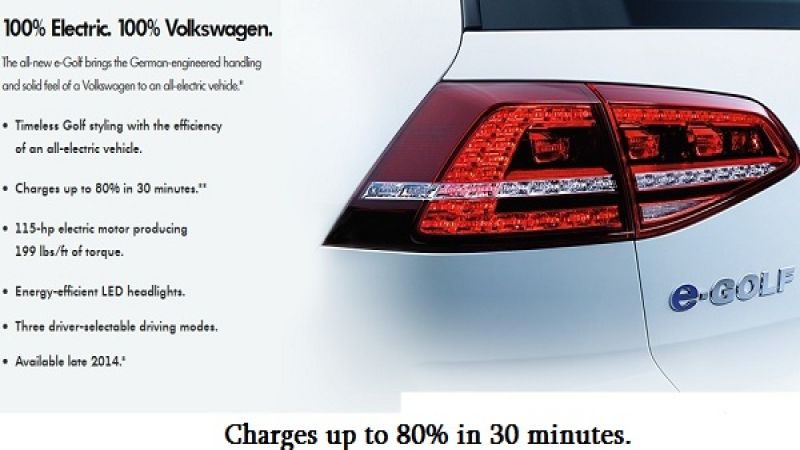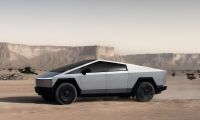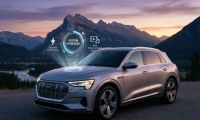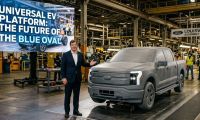Every battery is different. Automakers use different li-ion chemistries, different shapes and sizes of cells, and different thermal management systems. Nissan made headlines for huge range loss experienced by some LEAF owners in the southwest United States because the air-cooled battery could not sufficiently moderate its temperature.
Since then, rather than switch to a liquid cooling system, Nissan has tweaked their battery chemistry to be more heat-tolerant. Adding a dedicated liquid cooling circuit, as in vehicles like the Tesla Model S and Chevrolet Volt, adds cost, weight, and complexity which Nissan is loath to do as they attempt to drive costs down.
Volkswagen has said that the e-Golf, the electric version of the popular hatchback, will not need a liquid cooling system. Arriving on American shores toward the end of this year, the e-Golf employs a lithium nickel manganese cobalt oxide battery chemistry from Panasonic that boasts “the lowest self-warming tendency and the lowest memory effects of all cells tested. The need for a cooling system wasn’t there.” (VW’s Daryll Richardson, via AutoblogGreen).
The e-Golf will still have a thermal management system of sorts, integrated with the Battery Management System. The controller monitors each cell individually and regulates how much energy each cell produces to moderate temperature rise. Allegedly, waste heat will be redirected into the vehicle’s chassis so as to avoid unacceptable temperature increase in the battery.
One rather unfortunate trade-off that comes with air-cooled systems is that vehicle performance must be restrained slightly because demanding high current from the battery raises the temperature quickly. That is one reason why the VW GTE, the plug-in hybrid version of the high-performance GTI, will use liquid cooling for its battery. The e-Golf is more optimized for efficiency than performance, so liquid cooling isn’t absolutely necessary.
VW engineers say they have rigorously tested the battery in extremely hot climates and found that an air-cooled system would be sufficient for their needs. We’ll take a wait-and-see approach and keep tabs on real world performance once the e-Golf arrives, but I wouldn’t bet against the German automaker. With Nissan’s mistakes to learn from, Volkswagen has complete confidence their solution will withstand the rigors of even the warmest regions.
Set Torque News as Preferred Source on Google












Comments
It will be easy. Sell it only
Permalink
It will be easy. Sell it only in California and the left coast and you don't have to worry about thermal management much. I highly doubt this will be much more than a compliance car here in the U.S.
Last I checked California had
Permalink
In reply to It will be easy. Sell it only by Aaron Turpen
Last I checked California had some of the highest temperatures ever recorded on the planet. Not everyone in California lives in San Francisco.
By the numbers, there were
Permalink
In reply to Last I checked California had by dougliser (not verified)
By the numbers, there were nearly three times as many LEAFs with battery complaints from heat in Arizona than there were in California despite the fact that CA has more than double the sales rate of AZ. So unless you live in the Mojave..
Nissan is also set to
Permalink
Nissan is also set to introduce a Nickel, Manganese, Cobalt (NMC) battery some time this year. Guess they decided to use the KISS principle Keep It Simple Stupid. This thinking does have some merit as the chemistry is tolerant to heat. It might also be noted that the other EVs and PHEVs that have active cooling only switch on the cooling system when the battery is charging or discharging.
That was the buzz two years
Permalink
That was the buzz two years ago, Mike, but unless you have something new, it's not confirmed anywhere I know of. There was also, at that time, supposedly an Infiniti LE model to release this year. That's not even a rumor anymore.